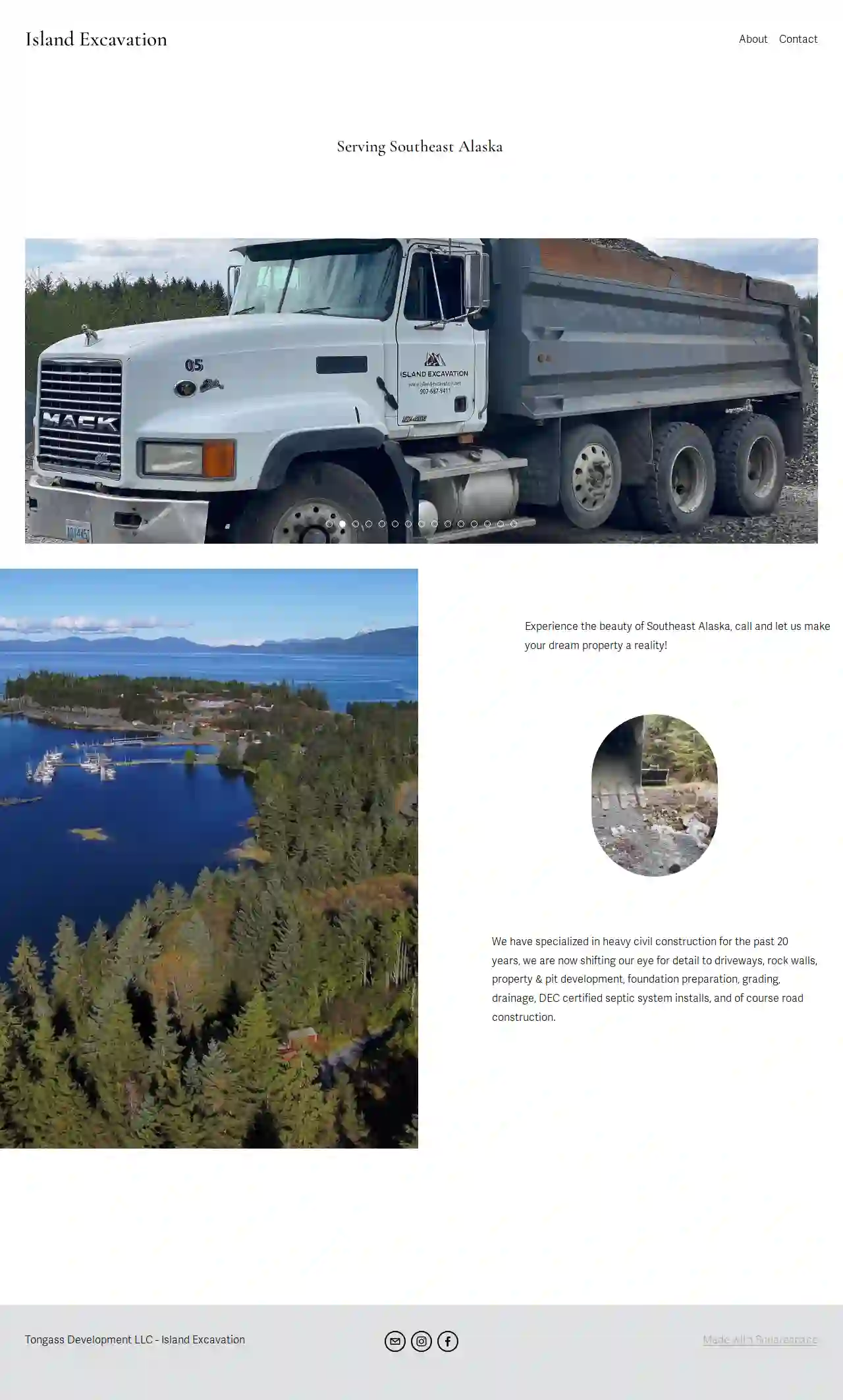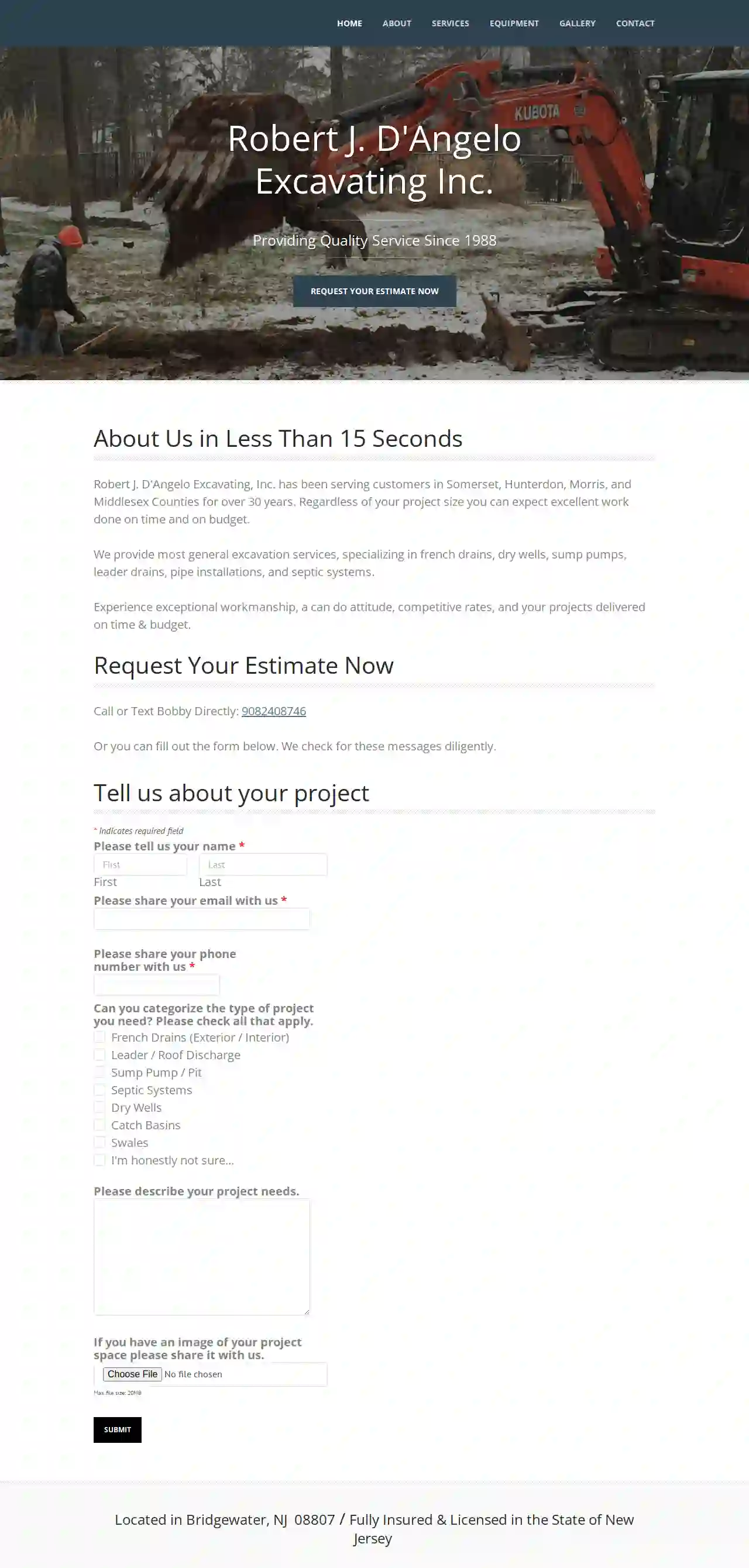Excavation Contractors West Valley City
Top Land Excavation in West Valley City
Receive multiple Land Excavation quotes for your project today! Compare profiles, reviews, accreditations, portfolio, etc... and choose the best offer.
- at
at hobel excavating
32 reviewsLehi, US- Services
- Why Us?
Get Quote - G.
G. A. Peak Excavating, Inc.
516 reviewsLehi, US- Services
- Why Us?
Get Quote 
Hone Excavation
51 reviews916 East 370 South, Santaquin, 84655, USHONE Excavation A full-service excavation company serving Utah and Salt Lake Counties, providing a range of commercial and residential excavating services. Over 20 years of experience, quality work, and fair pricing are our top priorities! We handle issues, problems, and projects of all sizes. Your satisfaction is guaranteed. Contact us for a free estimate.
- Services
- Why Us?
- Testimonials
- Gallery
Get Quote
Island Excavation
53 reviewsSandy, USIsland Excavation: Your Southeast Alaska Land Development Experts Island Excavation is a Prince of Wales Island-based general contracting company specializing in all aspects of land development and excavation. With over 55 years of combined experience in the construction industry, we bring a wealth of knowledge and expertise to every project. Our team is dedicated to providing high-quality workmanship and exceptional customer service. We understand the unique challenges of working in Southeast Alaska's rugged terrain. Our experienced team, led by Equipment Operator Brennen Bernal, is equipped to handle any project, from small-scale residential work to large-scale commercial developments. We take pride in our meticulous attention to detail and commitment to exceeding client expectations. Whether you're planning a new driveway, a rock wall, property development, foundation preparation, grading, drainage, or a DEC certified septic system installation, Island Excavation has the expertise and resources to get the job done right. We also specialize in road construction, ensuring safe and reliable access to your property. We are committed to serving all of Southeast Alaska, bringing our expertise and dedication to every project. Contact us today to discuss your land development needs and let us help you turn your vision into reality.
- Services
- Why Us?
- Our Team
- Gallery
Get Quote- K&
K&H Excavating Inc.
523 reviewsLehi, US- Services
- Why Us?
Get Quote 
Robert J. D'Angelo Excavating Inc.
53 reviews433 Talmage Avenue, Bound Brook, 08805, USRobert J. D'Angelo Excavating Inc. - Your Trusted Excavation Partner in New Jersey Robert J. D'Angelo Excavating, Inc. has been a trusted name in the New Jersey excavation industry since 1988. We've built a reputation for delivering exceptional workmanship, a can-do attitude, and competitive rates, all while ensuring your projects are completed on time and within budget. We're proud to serve customers in Somerset, Hunterdon, Morris, and Middlesex Counties, providing a wide range of excavation services, with a specialization in drainage solutions. Whether you need a French drain, dry well, sump pump installation, leader drain, or pipe installation, our team has the expertise and experience to handle your project with precision and care. We believe in treating every customer as our only customer, ensuring complete satisfaction from start to finish. Contact us today to discuss your project needs and experience the D'Angelo Excavating difference.
- Services
- Why Us?
- Gallery
Get Quote- Au
Ault Excavating
3.312 reviewsProvo, US- Services
- Why Us?
Get Quote 
Bradshaw Construction Corporation
4.77 reviews175 West Liberty Road, Eldersburg, 21784, USBradshaw Construction Corporation Bradshaw Construction Corporation is a leading contractor in the tunneling industry. With nearly five decades of experience, we've earned respect as technological innovators through the construction of highly difficult tunneling projects. We owe that success to our commitment to excellence, craftsmanship, safety, and earning our clients' trust. Bradshaw Construction Corporation strives to apply the most appropriate tunneling technology to each project based on its purpose, subsurface conditions and surface restrictions. The company's management team is proud of its ability to construct any type of tunnel in any soil condition both above and below the water table. From small hand mined, wood-box and liner plate tunnels to large NATM shotcrete-lined tunnels; from small pilot tube guided auger bores to large rib-and-board shield and tunnel boring machine (TBM) tunnels; from conventional pipe jacking to slurry microtunneling (MTBM) to earth pressure balance (EPB) TBM tunnels; and from hand mined drill and blast to rock tunnel boring machines (TBMs), Bradshaw Construction has a solution.
- Services
- Why Us?
- Testimonials
- Gallery
Get Quote- Le
Lewis Contracting
44 reviewsProvo, US- Services
- Why Us?
Get Quote - Ca
Cadoava
1Provo, US- Services
- Why Us?
Get Quote
Over 21,512+ Excavation Contractors on our platform
Our excavation providers operate in West Valley City and surrounding areas!
ExcavationHQ has curated and vetted the Best Excavation Contractors in West Valley City. Find a top & trustworthy contractor today.
Frequently Asked Questions About Excavation Contractors
- Spring and Fall: Often considered favorable due to moderate temperatures and drier soil conditions.
- Summer: Can be suitable, but hot weather can make working conditions challenging and might require additional measures (shade, hydration) for workers.
- Winter: Excavation in winter can be more difficult due to frozen ground, snow, and potential delays caused by inclement weather. It might also require specialized equipment or techniques.
- Soil Type and Stability: Stable, cohesive soils allow for deeper excavations than loose or unstable soils.
- Groundwater Level: Excavations below the water table require dewatering techniques to manage water intrusion.
- Equipment and Resources: The size and capabilities of excavation equipment influence the achievable depth.
- Safety Regulations: OSHA and other safety regulations impose limitations on trench depths without proper shoring or sloping.
- Project Requirements: The purpose of the excavation (basement, pool, foundation) determines the necessary depth.
- Trench Collapses: Unstable trench walls can cave in, posing a severe risk to workers. Proper shoring and sloping are crucial safety measures.
- Utility Damage: Striking underground utilities (gas, water, electric) can cause leaks, explosions, or electrocution. Accurate utility locates and careful digging are essential.
- Falling Objects: Materials or equipment falling into excavations can injure workers. Securing work areas and using appropriate safety gear is vital.
- Equipment Accidents: Operating heavy machinery involves risks of rollovers, collisions, or mechanical failures. Trained operators and proper equipment maintenance are critical.
- Environmental Hazards: Excavated soil might contain hazardous materials (asbestos, lead). Proper testing and disposal procedures are necessary.
- Hauling to Designated Disposal Sites: Transporting excavated material to approved landfills or recycling centers.
- Recycling or Reuse: If suitable, some excavated soil might be recycled for other projects or reused on-site for landscaping or backfilling.
- Complying with Regulations: Adhering to local and environmental regulations for soil disposal to prevent contamination or illegal dumping.
What is the best time of year for excavation?
How deep can you excavate?
What are the risks associated with excavation?
How do you handle soil disposal after excavation?
What is the best time of year for excavation?
- Spring and Fall: Often considered favorable due to moderate temperatures and drier soil conditions.
- Summer: Can be suitable, but hot weather can make working conditions challenging and might require additional measures (shade, hydration) for workers.
- Winter: Excavation in winter can be more difficult due to frozen ground, snow, and potential delays caused by inclement weather. It might also require specialized equipment or techniques.
How deep can you excavate?
- Soil Type and Stability: Stable, cohesive soils allow for deeper excavations than loose or unstable soils.
- Groundwater Level: Excavations below the water table require dewatering techniques to manage water intrusion.
- Equipment and Resources: The size and capabilities of excavation equipment influence the achievable depth.
- Safety Regulations: OSHA and other safety regulations impose limitations on trench depths without proper shoring or sloping.
- Project Requirements: The purpose of the excavation (basement, pool, foundation) determines the necessary depth.
What are the risks associated with excavation?
- Trench Collapses: Unstable trench walls can cave in, posing a severe risk to workers. Proper shoring and sloping are crucial safety measures.
- Utility Damage: Striking underground utilities (gas, water, electric) can cause leaks, explosions, or electrocution. Accurate utility locates and careful digging are essential.
- Falling Objects: Materials or equipment falling into excavations can injure workers. Securing work areas and using appropriate safety gear is vital.
- Equipment Accidents: Operating heavy machinery involves risks of rollovers, collisions, or mechanical failures. Trained operators and proper equipment maintenance are critical.
- Environmental Hazards: Excavated soil might contain hazardous materials (asbestos, lead). Proper testing and disposal procedures are necessary.
How do you handle soil disposal after excavation?
- Hauling to Designated Disposal Sites: Transporting excavated material to approved landfills or recycling centers.
- Recycling or Reuse: If suitable, some excavated soil might be recycled for other projects or reused on-site for landscaping or backfilling.
- Complying with Regulations: Adhering to local and environmental regulations for soil disposal to prevent contamination or illegal dumping.